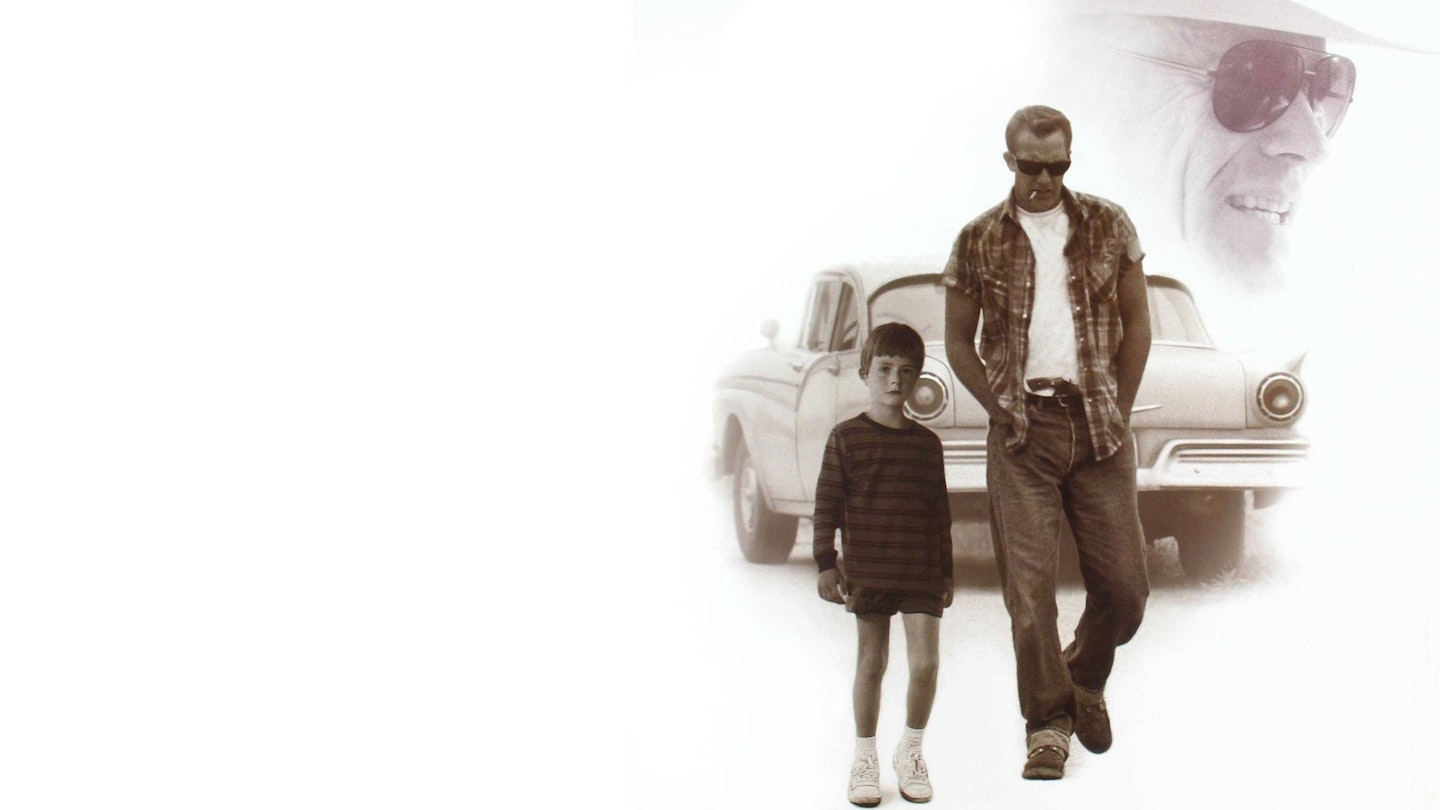Even before the glorius triumph of of Unforgiven, a palpable sense of expectation greeted any project directed by and starring Clint Eastwood. Add to the mix Kevin Costner, who with Dances With Wolves proved himself the one-time possible heir to Clint's actor-director throne, and it's doubly disappointing to report that A Perfect World, while not a total disaster by any means, squanders the talents of Eastwood and to a lesser extent Costner, as well as those of Dern, who appears, literally, to be along for the ride to counter-balance the prodigious amount of testosterone on display here. Equally perplexing is the question of just which audience the film is aimed at, being neither mainstream-friendly enough to satisfy those who lapped up Costner's do-goody turn in last year's The Bodyguard, nor those expecting another masterpiece from Eastwood in the wake of the Oscar-winning Unforgiven.
The problem herein is not that Costner is cast against acceptable type as a murderous con on the lam, but that John Lee Hancock's script which offers half a dozen intriguing and potentially explosive possibilities, the majority of which come off as blanks under Clint's direction allows the film to boil over in the heat of the midday sun, when, ideally, it needed to be left to simmer.
Set in a Texas still awaiting JFK's fateful visit, this is little more than a Western in 60s dress, with Costner's William "Butch" Haynes breaking out of prison along with fellow convict Terry Pugh (Keith Szarabajka), and setting off on an ill-founded quest to Alaska, taking hostage a fatherless eight-year-old Jehovah's Witness called Phillip (T.J. Lowther). Representing justice are Dern's state-appointed omni-nologist and Clint's grizzled Texas Ranger who set off in lukewarm pursuit, taking their manhunt to the backroads of Texas within the confines of a sleek silver caravan their paths intersecting with Haynes only twice.
Indeed, with both Dern and Clint very much on the periphery, it's the relationship between Costner and the boy that is at the heart of the film. And despite a wobbly Texan twang, Costner equips himself more than admirably, his Haynes exhibiting a dangerous, potentially murderous unpredictability, but conversely a warmth and compassion in his dealings with children. While a hardened criminal, as a surrogate father to the boy his motives are grounded in morality "I've only ever killed two people," he tells Phillip, "one hurt my mamma, one hurt you." Inevitably Haynes' affections are reciprocated by the boy, but unlike the back-story in which it transpires that it was Clint who recommended Haynes be sent to the juvenile detention centre where he learned the tricks of his criminal trade, the sentiments expressed ring true.
